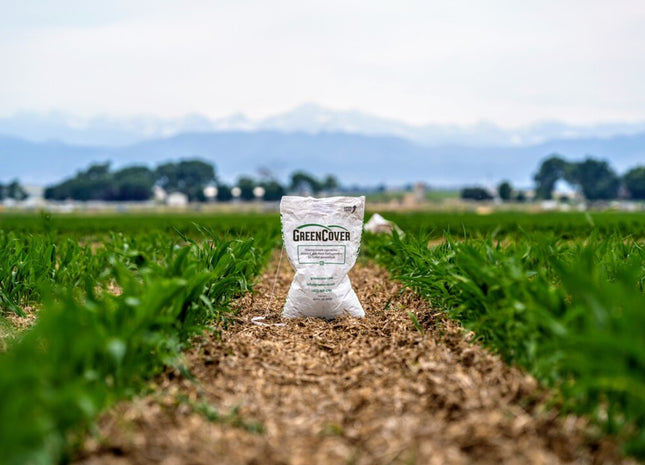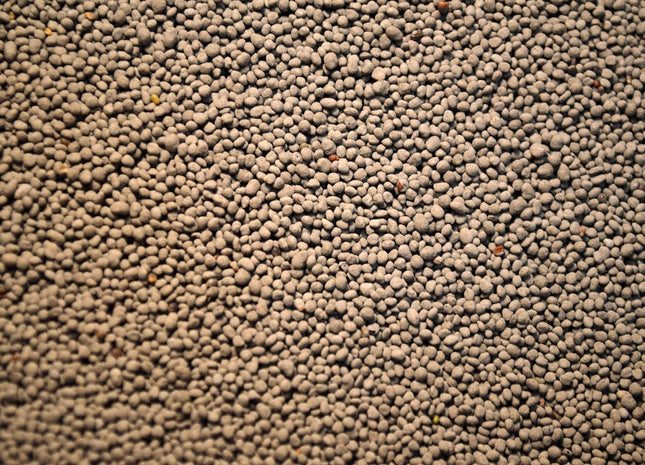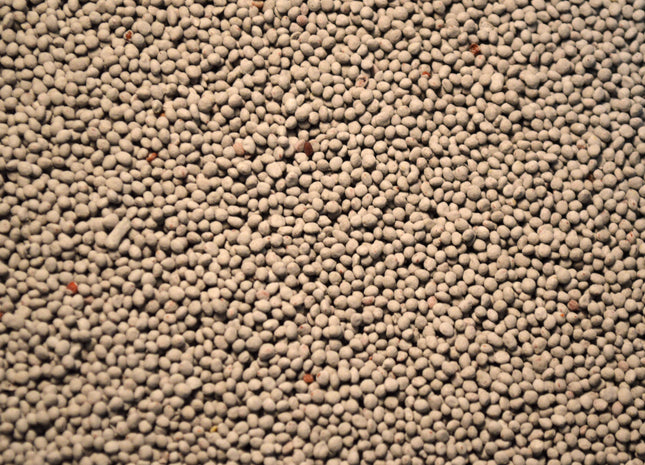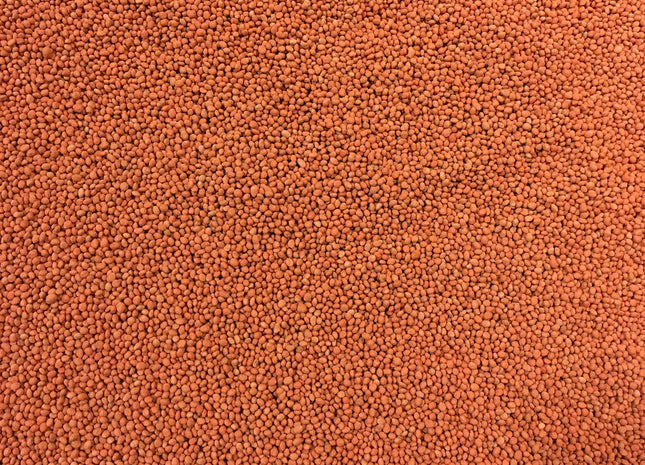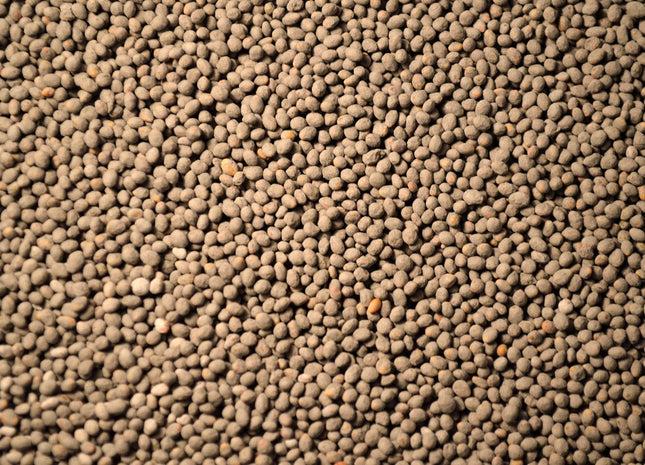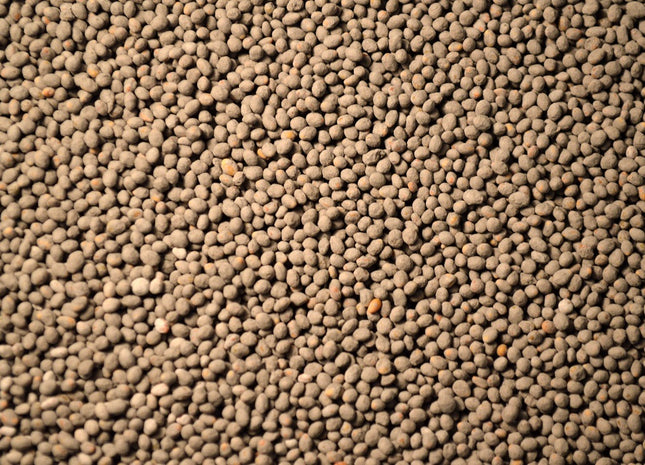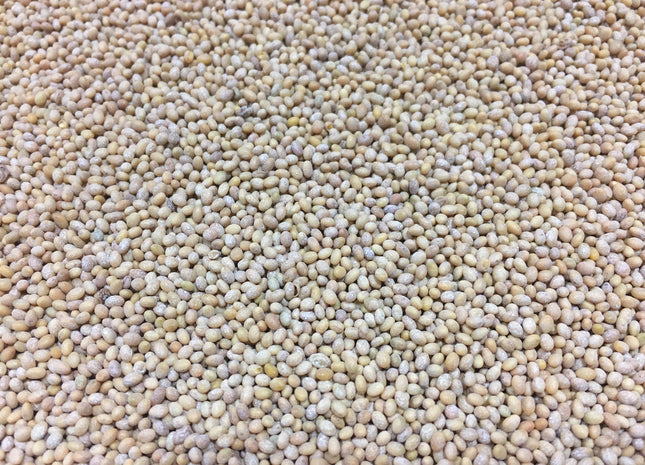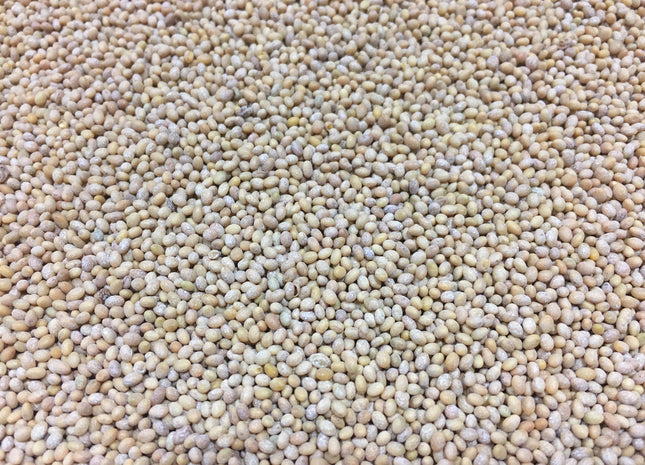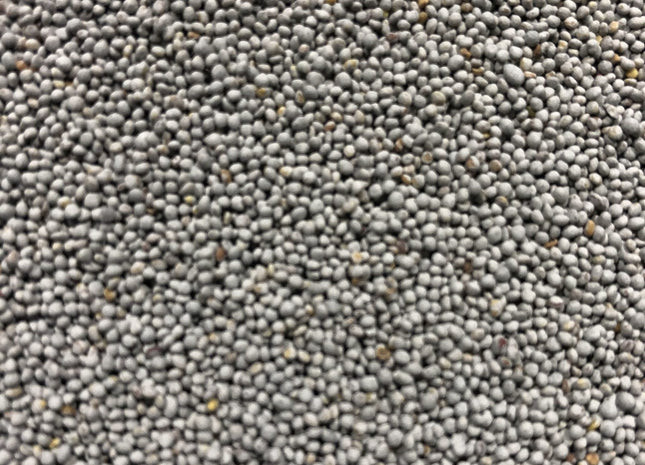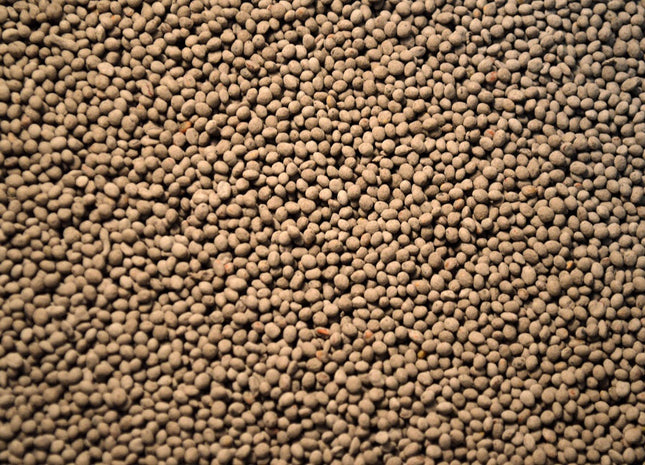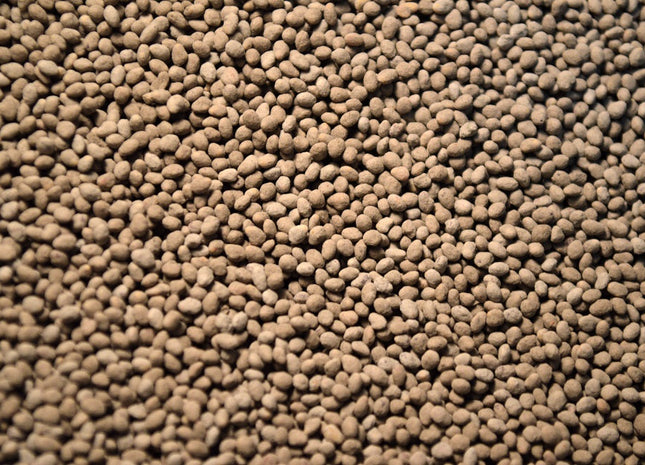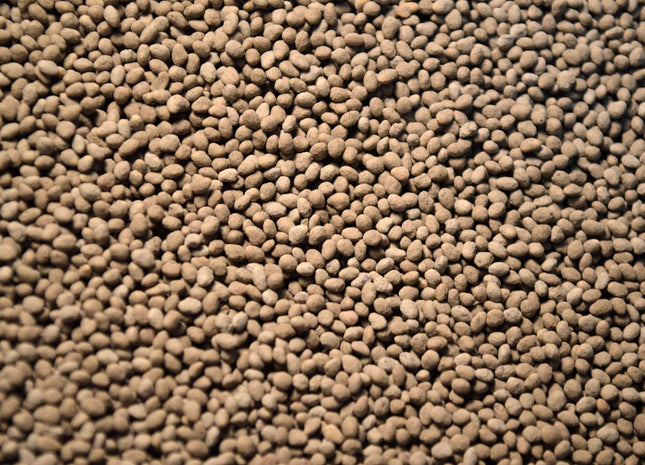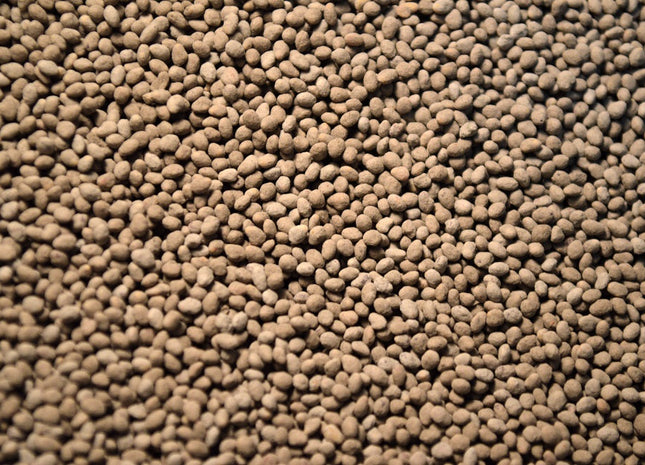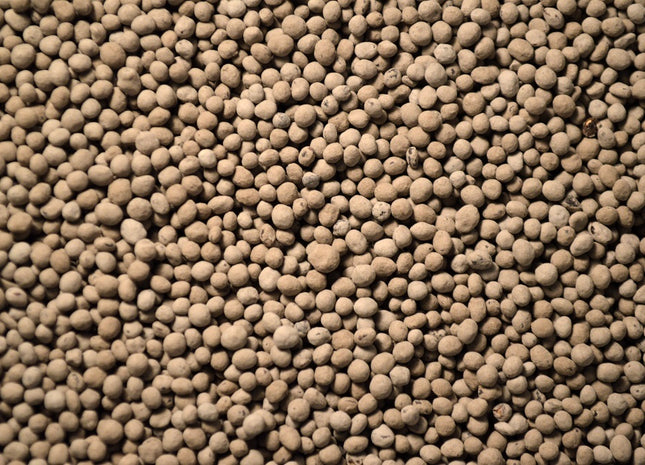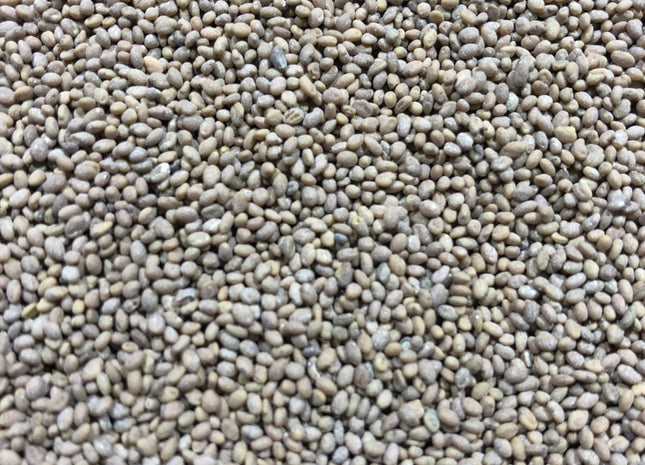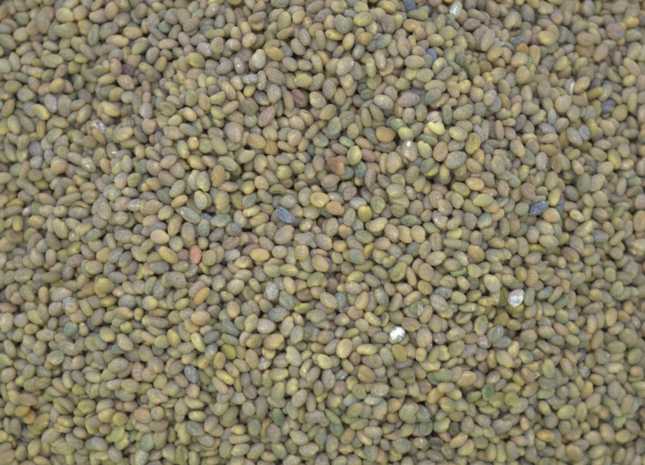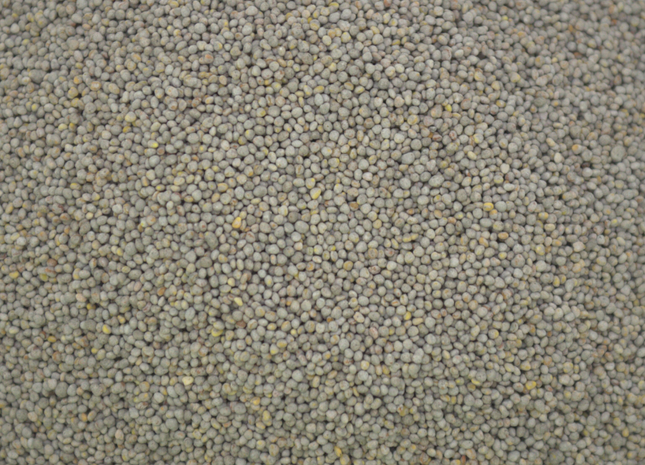Products

Aberlasting Kura/White Clover - OMRI Inoculated
Aberlasting clover is a cross between caucasian and white clover. The excellent and high quality forage from the white clover mixed with the persistence under extreme stress conditions from the caucasian clover make a very adaptable and hardy clover.
from $9.83 per lb

Alsike Clover - OMRI Inoculated
Alsike clover is a perennial that thrives in low lying ground. For pastures or meadows with poor drainage and occasional water logging, this would be the first clover to try. Growing 2-4 feet tall with pink flowers, this adds a pollinator attracting and nitrogen fixing species to perennial pasture mixes. It should be considered that alsike clover can be toxic to horses.
from $4.05 per lb
- Out of Stock

Arrowleaf Clover (Yuchi) - OMRI Inoculated
Arrowleaf clover is a cool season, reseeding annual legume. It is a multipurpose plant that can be used for grazing, hay production, a wildlife food source, soil improvement and a winter cover crop. Forage quality is high, with digestibility generally superior to crimson clover at all stages of maturity. Deer and turkey readily feed on Arrowleaf clover.
from $3.25 per lb

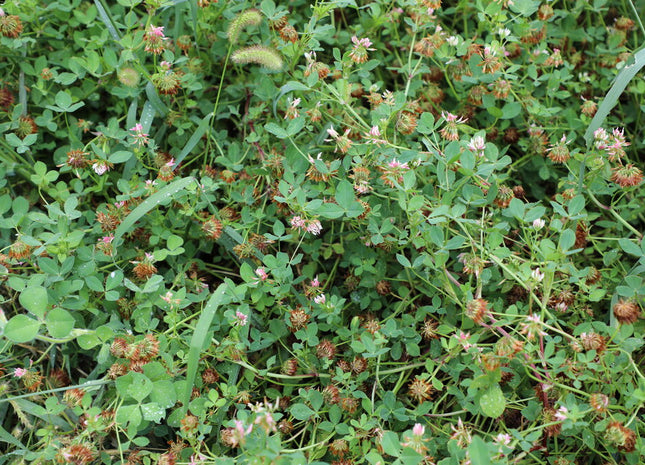
Balansa Clover (Fixation)- OMRI Inoculated
FIXation balansa clover is the most cold-tolerant annual clover, surviving temperatures as low as -15. Where it does overwinter, FIXation is capable of growing over 200 lbs of nitrogen biomass and it even has a hollow stem making it an option for roller crimping. This can also be used for a high yielding, high protein feed before transitioning to the next summer crop. To have the best chance at winter survivability, plant earlier than other overwintering species. For more information on FIXation balansa clover, visit https://fixationclover.com.
from $2.95 per lb

Berseem Clover (Balady) - OMRI Inoculated
Berseem clover produces a non-bloating, high quality forage, that's more palatable than alfalfa. Berseem forage has been observed to maintain a CP content of 28-30% throughout harvesting regiments, which is slightly higher than crimson clover or alfalfa. Berseem clover has low water requirements and can provide strong biomass recovery after being mowed. A rapidly, consistent stand can be achieved because germination can occur in just 7 days and minimal hard seed counts. This clover produces flowers which are self-sterile so reseeding is not a concern. These flowers do provide a great pollen source, which is highly sought after by honeybees. Berseem can be controlled easily with glyphosate or when planted in colder regions will winterkill. With good shade tolerance, this species can be utilized for interseeding into crop systems or forage mixtures.
from $2.35 per lb

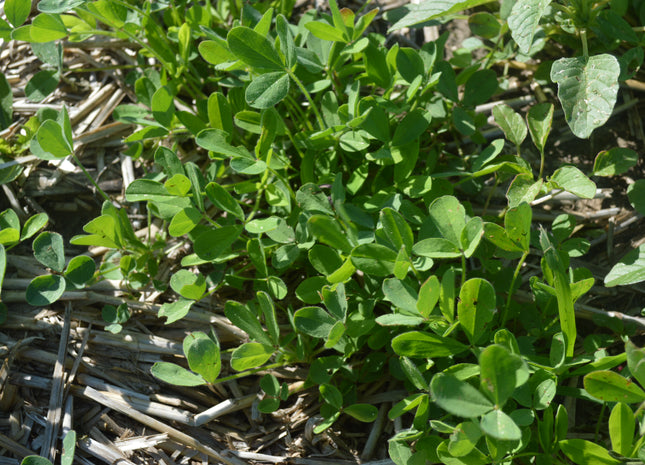
Berseem Clover (Frosty) - OMRI Inoculated
Berseem clover is a Mediterranean type that is salt tolerant, nitrogen fixing, and does well on light textured, sandy soils. Compared to other varieties of berseem clover, Frosty is later maturing, more cold tolerant, more productive, and has greater nutritional value. Frosty berseem clover can be overseeded into thinning stands of alfalfa as it looks very similar (before it blooms white) and it has excellent regrowth after cutting. For more information on Frosty berseem clover visit https://frostyclover.com.
from $3.85 per lb

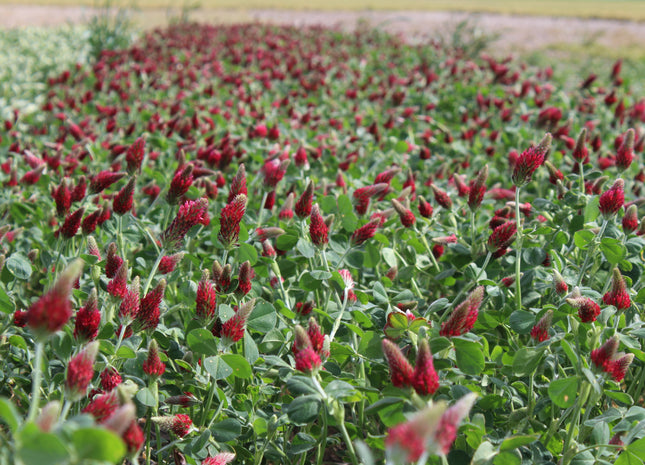
Crimson Clover (Dixie) - OMRI Inoculated
Crimson clover is one of the fastest growing, fastest establishing clovers. Known for its beautiful, deep red, cone shaped bloom, crimson clover is one of the most aesthetically pleasing cover crops and a popular choice for pollinator insects. For a more cold tolerant and higher biomass version, consider Kentucky Pride crimson clover.
from $1.26 per lb

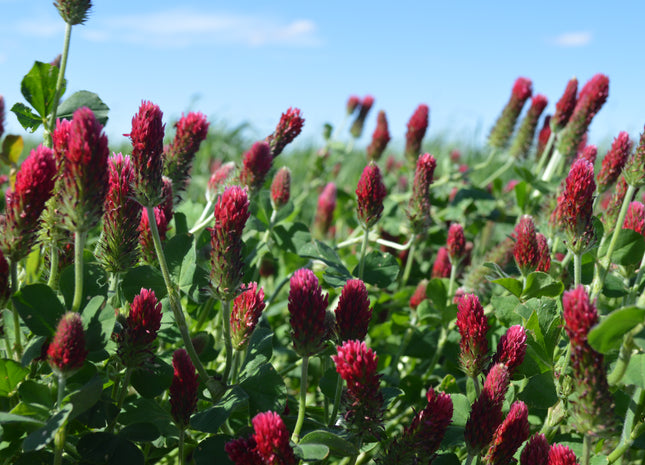
Crimson Clover (Kentucky Pride) - OMRI Inoculated
Kentucky Pride is an improved variety of crimson clover selected for more cold tolerance and more production (taller, deeper roots, more basal leaves and more tillering) than varieties like Dixie. Kentucky Pride crimson clover is a very fast establishing clover.
from $1.36 per lb

Dutch White Clover - OMRI Exceed Pre-Coat Inoculated
Dutch white clover, a true perennial, is the most widely-grown clover in the United States. White clover is widely adapted and can often live for several years. It can be found growing naturally from the Arctic Circle to all parts of the temperate regions of the world. It is quite tolerant of traffic and a natural spreader. This grazing ability is achieved by its high seed production (reseeding) and an extensive network of creeping stems called stolons. Dutch white clover is extremely tolerant of heavy grazing and shade.
from $4.40 per lb
- Out of Stock


Organic Crimson Clover
Note: This product is certified organic. Crimson Clover is one of the fastest growing, fastest establishing clovers. Known for its beautiful, deep red, cone shaped bloom, crimson clover is one of the most aesthetically pleasing cover crops and a popular choice for pollinator insects.
from $3.10 per lb

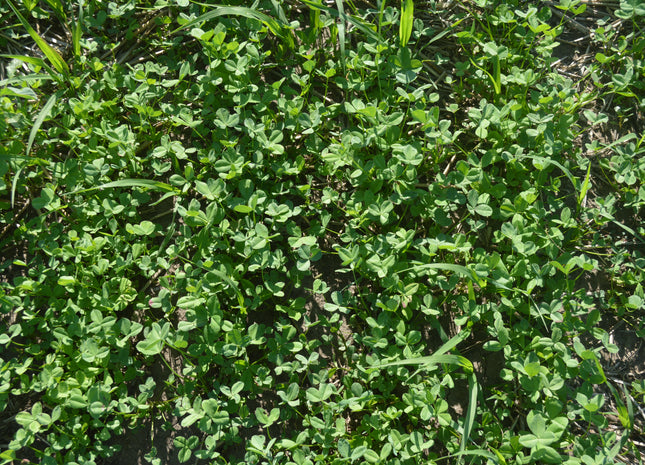
Persian Clover (eNhance) - OMRI Inoculated
Every aspect of this plant supports its reputation for excellent forage quality. Mature stems are soft, hollow and have thin structural plant cell walls, leading it to be more digestible than red clover or alfalfa. Some common forage tests boast CP 16-21% and IVDMD 63-78%. Not to mention, studies have shown persian clover to be more palatable than rape, alfalfa, fescue or perennial ryegrass. High productivity during March through April provides excellent regrowth potential following grazing or the ability to support two spring hay cuttings. Given the right circumstances, one could expect persian clover to naturally reseed and be redistributed by wind/water via its very mobile, light weight, seed pods. Spring flowers are also known to attract flower flies whose larva are a leading predator of aphids. Learn more about eNhance Persian Clover here.
from $3.05 per lb

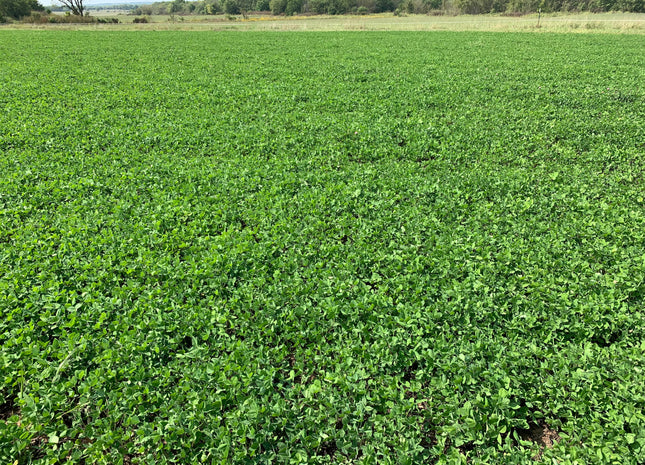
Red Clover (Blaze) - OMRI Inoculated
With similar forage yields, crude protein and better digestibility when compared to alfalfa, red clover can be an excellent forage alternative to add to your operation. You can harvest your first cutting 60-70 days after a spring seeding and on every 30-35 day intervals after initial harvest. With its vigorous spring growth, this clover has the capability of suppressing weeds. Red clover is less invasive than white clover because of its shorter life span and the lack of rhizome or stolon rooting structures. It's deep taproot can extend up to 3ft into the soil profile and finer rooting structure in the top 5" can really aid in breaking up compacted soils. Red clover flowers are known to attract many pollinator and beneficial insect species. If P leaching is a concern, red clover has been observed to leach only 1/3-1/5 the amount of P as ryegrass or radishes. Learn more about Blaze Red Clover here.
from $3.55 per lb

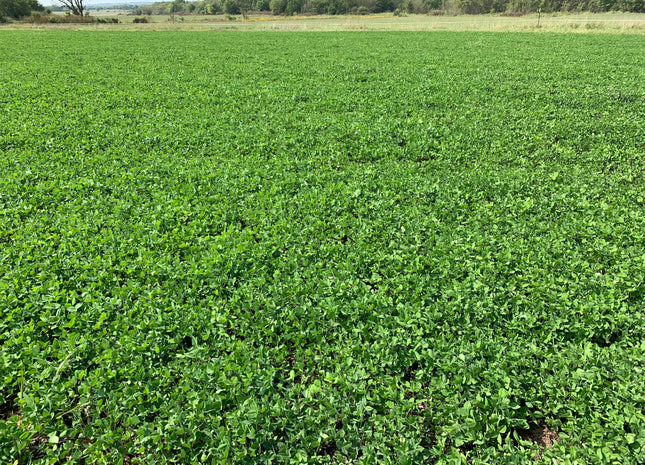
Red Clover (Medium) - OMRI Inoculated
With similar forage yields, crude protein and better digestibility when compared to alfalfa, red clover can be an excellent forage alternative to add to your operation. You can harvest your first cutting 60-70 days after a spring seeding and on every 30-35 day intervals after initial harvest. With its vigorous spring growth, this clover has the capability of suppressing weeds. Red clover is less invasive than white clover because of its shorter life span and the lack of rhizome or stolon rooting structures. It's deep taproot can extend up to 3ft into the soil profile and finer rooting structure in the top 5" can really aid in breaking up compacted soils. Red clover flowers are known to attract many pollinator and beneficial insect species. If P leaching is a concern, red clover has been observed to leach only 1/3-1/5 the amount of P as ryegrass or radishes.
from $3.00 per lb

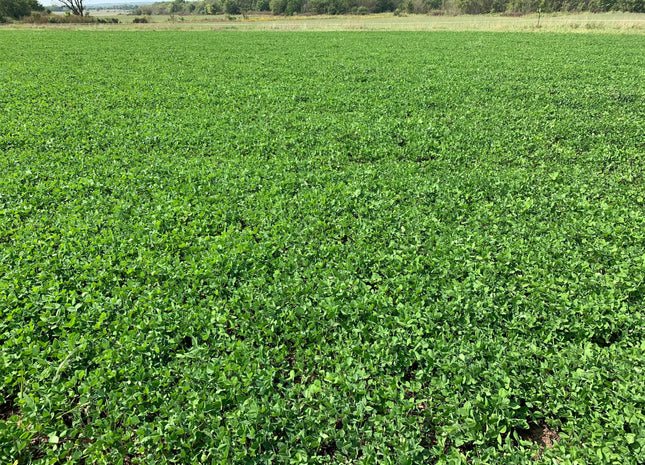
Red Clover (Q Medium) - OMRI Inoculated
With similar forage yields, crude protein and better digestibility when compared to alfalfa, red clover can be an excellent forage alternative to add to your operation. You can harvest your first cutting 60-70 days after a spring seeding and on every 30-35 day intervals after initial harvest. With its vigorous spring growth, this clover has the capability of suppressing weeds. Red clover is less invasive than white clover because of its shorter life span and the lack of rhizome or stolon rooting structures. It's deep taproot can extend up to 3ft into the soil profile and finer rooting structure in the top 5" can really aid in breaking up compacted soils. Red clover flowers are known to attract many pollinator and beneficial insect species. If P leaching is a concern, red clover has been observed to leach only 1/3-1/5 the amount of P as ryegrass or radishes.
from $3.55 per lb

Subterranean Clover
Subterranean clover is an excellent addition to any perennial pasture mix. With it's excellent reseeding ability, even under heavy grazing pressure, this annual clover will persist for many years. The bulk of its growth occurs in mid-spring. It is tolerant of shade and low fertility. Use subterranean clover to add diversity to pastures, for weed suppression in gardens and in any other situation that requires a low growing legume.
from $4.60 per lb

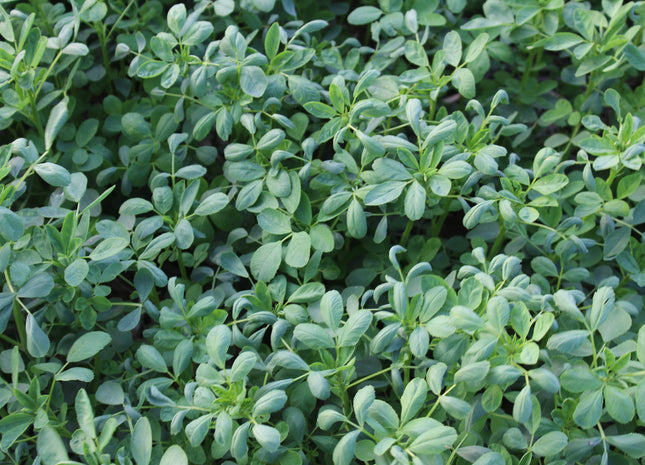
Sweet Clover (Hubam White) - OMRI Inoculated
Hubam White Sweet Clover can produce up to 9,000 lbs dry matter per acre over a summer after being oversown into a grain crop or direct seeded with a spring grain nurse crop. While its taproot is shorter and more slender than that of its biennial cousins, it still loosens subsoil compaction. Annual sweetclovers work best in the Deep South, from Texas to Georgia as they are not frost tolerant. There, they establish more quickly than the biennial types and produce more biomass in the seeding year in southern regions.
from $3.61 per lb

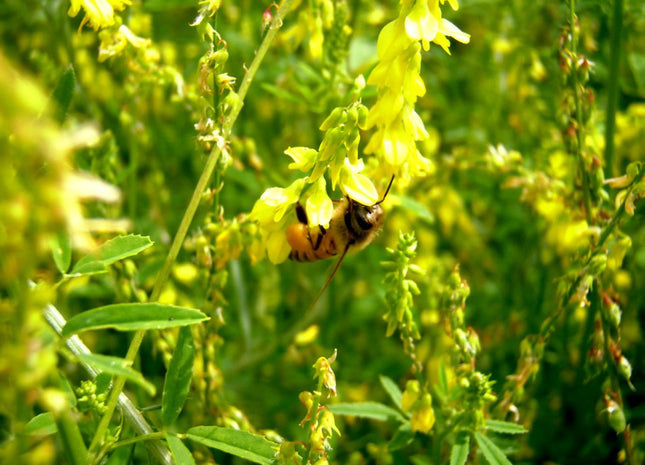
Sweet Clover (Yellow Blossom) - OMRI Inoculated
Yellow blossom sweet clover is not a true clover but is probably more closely related to alfalfa. Sweet clover leaves look much like alfalfa, but the margins of sweet clover leaflets are serrated around their entire edge whereas alfalfa is only serrated on the tip. It is typically a biennial, grows 2-6 feet high, and as the name implies, produces yellow flowers. When compared to the white flowering types of sweet clover yellow blossom blooms roughly 2 weeks earlier. It also matures earlier, usually grows less upright, possesses finer stems, and is less productive and less winter-hardy. However, yellow blossom sweet clover persists better in pastures and tolerate adverse conditions better than white varieties. In temperate climates with mild summers it can survive and thrive through a second year of production. Yellow blossom sweet clover adds lots of nitrogen and organic matter to a system.
from $3.75 per lb

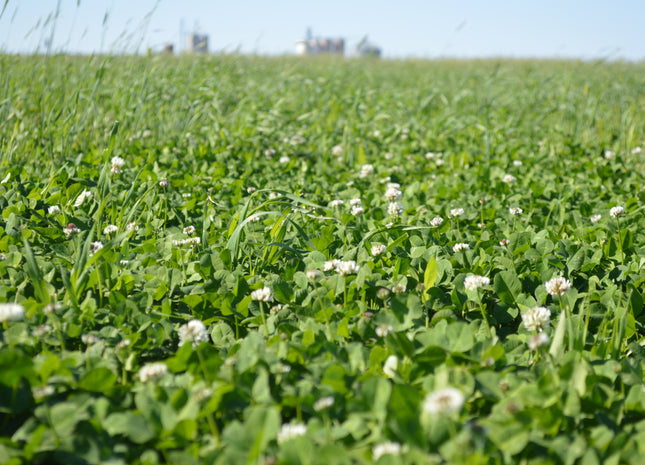
White Clover (Stamina Intermediate) - OMRI Inoculated
White Clover is an excellent choice for a perennial clover. The Stamina variety was developed to be more heat and drought tolerant than most other white clovers. Being a legume this plant can cause bloat, but rarely when it is in a mix with grasses. White clover is also a great choice for areas that have saturated soils.
from $6.05 per lb

